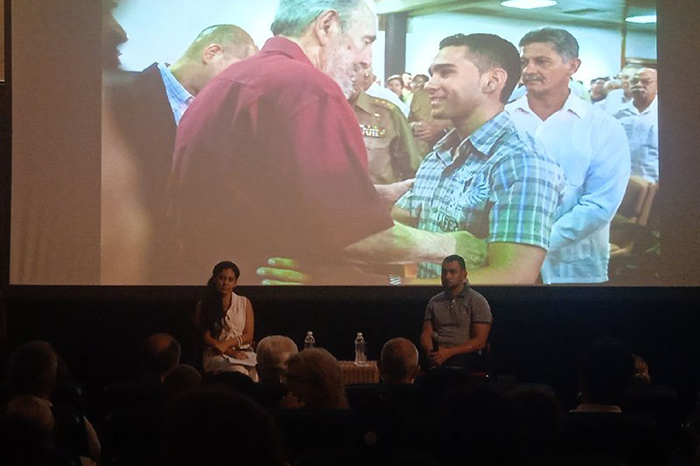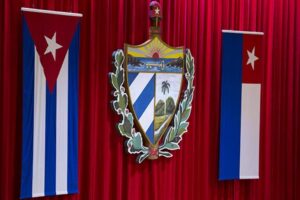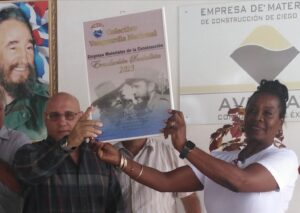At 31 years old, Elián González Brotons today expressed gratitude for the privilege of recalling his experiences with Commander-in-Chief Fidel Castro Ruz – bringing the leader’s intimate humanity into the present while vowing to honour his legacy through personal conduct befitting Castro’s expectations.
A quarter-century separates him from that watershed 28th June 2000, when father and son descended an aircraft stairway from the United States into the embrace of a nation wholly devoted to securing the shipwrecked child’s return.
During this morning’s dialogue at the Fidel Castro Ruz Centre with young inheritors of that legacy and key protagonists of the mobilisations orchestrated by Cuba’s revolutionary leader, the now-engineer and family man found emotions overwhelming as he shared personal Fidel anecdotes. These recollections revealed, González stated, a paternal, grandfatherly figure whose closeness made him feel profoundly understood.
For Elián – a name etched into generations of Cuban consciousness – the greatest challenge through the years was gradually discovering Fidel’s true character beyond the demonised version portrayed by his captors. He credited the Commander-in-Chief himself with dismantling this false narrative through exquisitely sensitive gestures and meticulous attention to detail, revealing a human dimension distinct from the statesman’s public persona.
Among Fidel’s virtues, González highlighted the leader’s determination to return him to his native Cárdenas in Matanzas province; his shielding from media exploitation; and protection from becoming a spectacle. «Fidel helped me rebuild the most peaceful life possible alongside family and homeland,» he affirmed, «where I feel both cherished and fulfilled.»
González acknowledged the profound gift of being embraced by every Cuban household and millions of compatriots – an eternal debt to the Commander demanding perpetual worthy conduct.
René González Barrios, Director of the Fidel Castro Ruz Centre, asserted that any historical account of the continent’s 20th century must include Elián’s saga alongside the dignity exemplified by his father Juan Miguel and Cuba’s united struggle for their son’s repatriation.
Aged six, Elián was illegally taken from Cuba by his mother Elizabeth Brotons on 22nd November 1999. Their US-bound vessel foundered at sea, drowning 11 occupants including Elián’s mother. Rescued while clinging to an inner tube, he was delivered to US territory where – following his father’s rightful claim – he became the focal point of a national crusade for his return.
In Florida, custody was granted to great-uncle Lázaro González, who subsequently conspired with anti-Cuban factions to prevent repatriation. This triggered a protracted legal battle against groups denying Juan Miguel’s parental rights, culminating in mass mobilisations that achieved Elián’s return on 28th June 2000.




